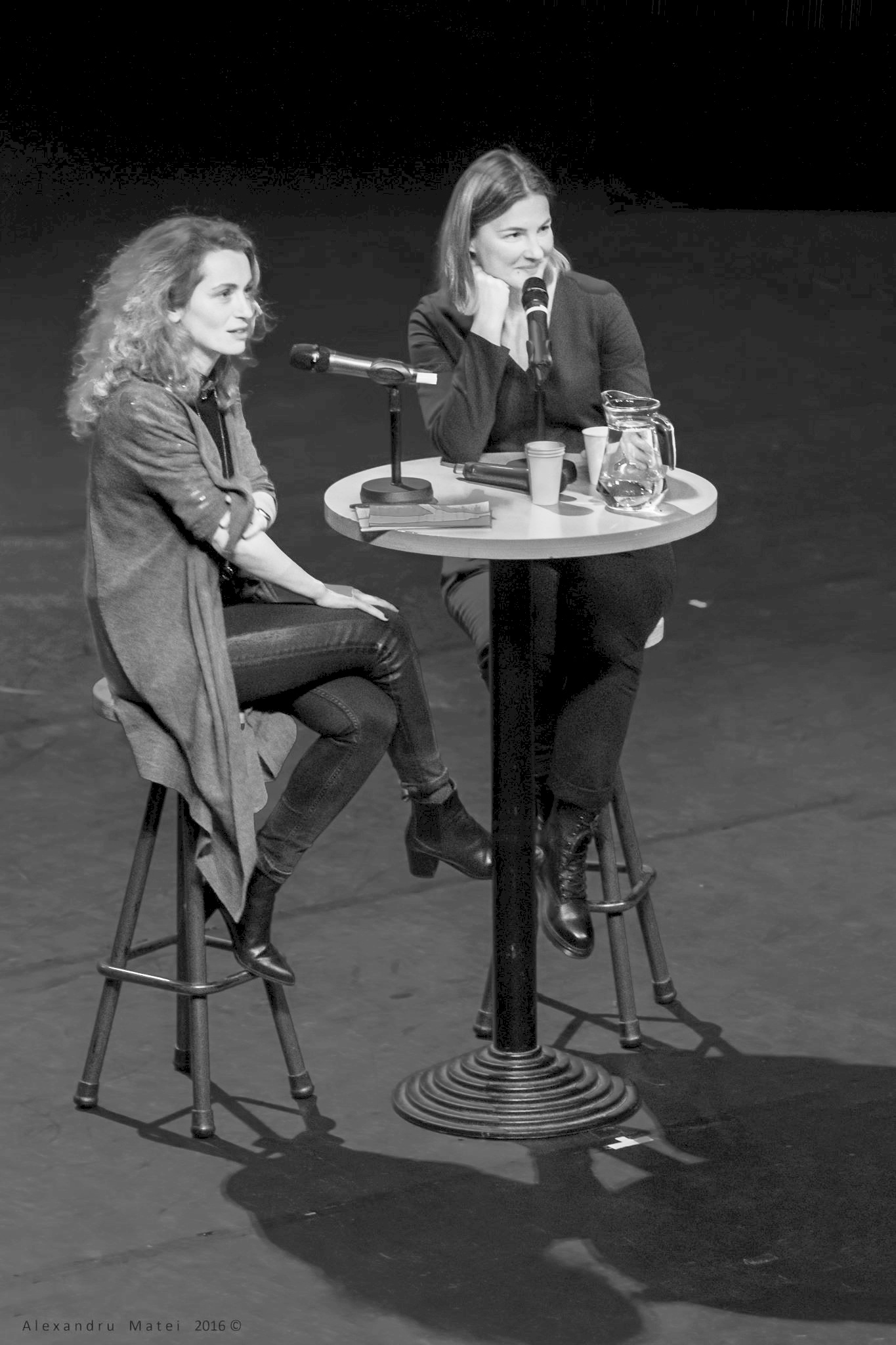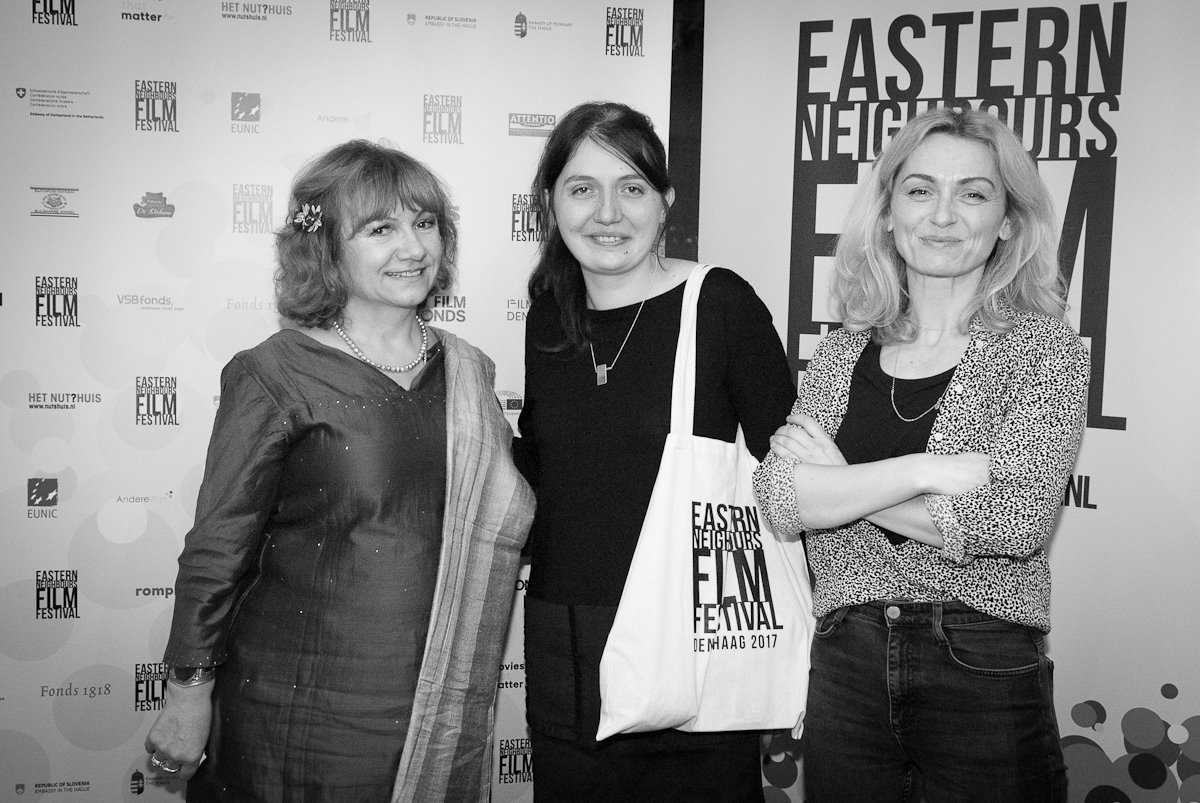What brought you to the Netherlands?
I came in 2008, together with my Dutch partner. He had worked for eight years in Romania – twelve, in total, abroad – and he wanted to return home. It never crossed my mind, nor did I have the aspiration to leave, but at that age, I felt there was no other option but to leave with him.
What was it like in the beginning?
The beginning was complicated. Complicated towards painful. First of all, because we had moved in a neighborhood in the Hague that has a very strong subculture, which I disliked.
We still live there and I’ve noticed how the past few years there’s some sort of pride that has activated itself inside me because I life in Scheveningen, in the fishermen’s neighborhood. But in 2008, I woke up from one day to the next in a pretty closed world, where the locals disliked the foreigners, especially those who came to stay. In general, it wasn’t the most progressive place where you could land in the Netherlands, but – by the way – it’s a relevant example of how much things can change in just ten years, if there’s structural change. During the housing crisis – and as a consequence of it –, it became an increasingly popular neighborhood among outsiders, so today it’s much more diverse as far as the nationalities and the cultural and social strata are concerned. But back then I wasn’t ready for the move and it’s obvious in the beginning I wasn’t willing to understand much about the people living here. I was stuck in a rut, idealizing Bucharest and my former life.
What did you leave behind?
What I was terribly missing was the work I did and those I used to work with, but also a sense of belonging. I was working in film production, with interesting, creative, and resourceful people, and it was an effervescent period, which gave me the feeling that I was part of something extraordinary, where my contribution was being appreciated. I realized only later that I experienced that departure as a sacrifice, and because I ended up in a place I disliked, it was a depressing combination, which resulted in me staying in, on the couch, and in dragging myself out on long, sad walks to Albert Heijn (largest Dutch supermarket chain, ed.). I was sorry I came, but, fundamentally, I think it was a psychological struggle with the fact that I had cut my roots.
It helped me, then, when my childhood friend came to visit. She had moved to Paris about six year prior and had already internalized the emigration process. She found me pretty much collapsed, complaining about everyone and everything. And in a very sweet and non-invasive way, she told me to try to understand who these people were, so that I can then make myself both understood and accepted by them. Otherwise it wouldn’t work. It was the first useful piece of advice that I got.
Anyway, some more months passed, mostly spent inside, until one day, when I practically couldn’t stand myself not doing something. So I called the Romanian Embassy – my voice must have been trembling – and I asked if there weren’t any cultural projects in which I could get involved as a volunteer. There weren’t, but that phone call was an opportunity because the cultural attaché at the time, Mioara Pituț, reacted openly and told me over a cup of coffee about some of the things she knew about the Dutch cultural sector. Among other contacts, she introduced me to a cultural programmer from the Czech Center, who helped me get even more insight into how things worked. That’s how I got to begin working as a film programmer at a cultural center in the Hague. I was putting together a program of documentaries and debates. It was the beginning of another period, completely different.
When did you learn the language?
I started learning it without noticing. At home, we constantly use three languages. I speak in English with Willem and in Romanian with the kids, and he speaks in Dutch with them. I started learning it passively, listening to them. I was actually learning kids’ Dutch. Later on, I did a few courses, when I was already working and it seemed that it would help me mainly in my interaction with my colleagues, but the truth is that I haven’t reached such a high level of proficiency, not enough to work in Dutch. But I’ll admit that by learning the language I could understand the group, the community, the society. An important milestone was when I started getting the neighbors’ jokes and I could reply. I think this is an essential aspect of being able to enjoy other people’s company in a new place, it made me feel at home.
When was Spotlight: Romania established?
It was established in October 2015, a little less than a year after I met Bianca (Bianca Olivia Niță, ed.). We were both thinking about organizing some sort of event with Romanian films because we knew a ton of good films that would otherwise never get a chance to be seen here. Except for the films of two or three acclaimed directors, which almost always get distributed in art film cinemas, or except a couple of films selected at IFFR (International Film Festival Rotterdam, ed.) and IDFA (International Documentary Film Festival Amsterdam, ed.), all other Romanian films practically don’t stand a chance to be seen by the local public.
It was also a more – let’s call it – personal drive, perhaps idealistic, which emerged from the fact that we were tired of a number of stereotypical reactions that some Dutch people have when they hear someone say “I’m a Romanian.” Bianca is very good at enumerating and dismantling them in a funny way. By that, I mean reactions like “I also went to Romania to offer aid to a village.” or “Wow, I didn’t know that Romanians look also like this.” In short, we thought that by showing contemporary art and films, we’ll bring a new perspective on what it’s like in today’s Romania and we’ll even maybe trigger a next-level dialogue. In any case, this project began because the two of us had an exceptional click. In just ten months we managed to put together a film and documentary photography festival in two locations in the Hague, financed by Fonds1818, a Dutch cultural fund, and which had about a thousand visitors. Now, I realize that we could drink another bottle of wine to that.

And the festival has kept growing, it’s almost a tradition by now. What does Spotlight: Romania mean to you now?
Yes, I think it has grown. Meanwhile, there are more people working on it. And to me, the proof that things are going in the right direction is that people we like and who do interesting things here or in Romania want to affiliate and collaborate with us. I believe a lot in collaborations because they can be generators of projects and ideas that, on top of everything, have increased chances of visibility and impact.
Last year, we partnered with Bucharest International Experimental Film Festival (BIEFF) and this collaboration allowed us to bring into our festival an excellent selection of video art and Romanian experimental cinema that we couldn’t have otherwise done on our own.
Also last year, we worked together with KINOdiseea, the International Children Film Festival from Bucharest, and they provided us with films in Romanian for the kids in our community here. I was very impressed to see how many Romanians brought their kids to see a film on a Saturday morning – many were from the Hague, but also a lot of them came from Amsterdam, Utrecht, or Rotterdam.
That says something also about the fact that at Spotlight: Romania we’re in search of a functional balance between having an interesting program for the local audience – the cinema goer who is a fan of arthouse films – and finding and delivering the content that the Romanian community would like, whose cultural needs are rightfully more emotional. Clearly, there are two different target groups, but I think that we can address both here. Every year new content and program ideas emerge and each time we think a lot about how to put each edition in context, so that the film selection and parallel programs don’t end up excluding one group or alienating another.
How do you look back at all these years?
I see the ability of living among different kinds of people of different cultures as an extraordinary personal opportunity.
What do you like about the society in which you live?
I like how they treat their kids, I like the women’s emancipation and empowerment, I like it how those earning minimum wage are not impressed, nor oppressed by those earning tenfold.
Is there anything you dislike?
There are things I dislike, but they don’t seem relevant in the bigger picture.
What does success mean to you?
To me, success is an overrated concept. I’m one of those who believes that it’s a big source of stress. How to be successful, how to seem successful, how much you should have in order to be successful, how much to earn so you can stay on top, and so forth. It seems to me that it depletes us more than it yields. And that’s just naming some ideas in broad strokes.
Not even before leaving Romania was I interested in personal success, just as I’m not interested in it now, as well. I’m interested, however, in doing things as good as I can, by my own standards, where good doesn’t necessarily mean successful.
What kind of a relationship do you have with the Romanian community in the Netherlands?
Ever since I’ve been involved in the film festival and other cultural projects, I’m more connected to the Romanian community, but I wouldn’t know how to describe my relationship in a general sense. I’ve met a lot of people that I like, I’ve made some friends that I think I would have made also had I lived in Bucharest. I’m working on projects at Eastwards with a group of women who are full of initiative, great ideas, and resources, and with whom I feel connected by the fact that we all speak the same language and we have an in-depth understanding of what we are as a consequence of the fact that we’re from Romania.
But I also have contact with those who constantly expect us to set ourselves up as some kind of a tourism agency for Romania, those who think that what we’re doing in the Netherlands should show how “beautiful, great, and special” the country where we come from is. This is the kind of narrative I don’t identify with and I don’t believe in.
What would you advise a Romanian who would like to come to the Netherlands now?
It’s hard to give general advice about this. I think in my case, in the beginning, it would have helped me to know more about the practical aspects, about how things are done here. In this respect, I think the ROMPRO Foundation – Romanians for Romanians in the Netherlands – has identified very well the needs that a newcomer has and they’re doing an excellent job. How to choose a language course, where to find a general practitioner, how to pay your taxes, what kind of financial support can the authorities offer, that kind of basic stuff. It matters tremendously to be familiar with the practical aspects because that saves you anxiety and uncertainty.

An interview by Claudia Marcu
Translation by Mihaela Nita
Photos by Alexandru Matei
Photo-portrait by Cristian Călin – www.cristiancalin.video



